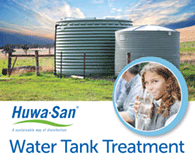
Advocacy matters – NZFGA Roundup Feb 2017
GERMAC – The first Germac meeting for the year was due to be held on Feb 21st. Unfortunately our representative Andy Warren was to be in Peru that week. However he expressed a particular interest in the status of the ‘Offshore Audit programme’. This may help alleviate bottlenecks for fruit and ornamentals.
Current Germac issues are –
-
MPI’s Germplasm Imports work plan: - this includes reviews of Import Health Standards and audit of approved offshore facilities. IN 2015 additional resources were provided to this team and a positive impact is becoming evident.
-
Use of next Generation Sequencing [NGS] to detect & identify plant viruses: - NGS has the potential to replace or supplement traditional diagnostic platforms. It is a molecular tool and responds to enzymes that plants produce in response to viral infection. It is rapid, specific, readily automated, and getting cheaper by the day. A regulatory framework must first be developed prior to its use.
-
New ‘Post Entry Quarantine’ [PEQ] facility standard and IHS: - The New PEQ facility standard becomes effective March 2017. Key IHS standards are assessed and risk management needs matched to the new levels of PEQ – 3A; L3A; where L2 level does not effectively manage the risk but 3B would be overkill.
-
Pest risks associated with tissue culture: - A concept exists that tissue culture is clean. However there is an increasing body of evidence to show that it is not .Viruses and phytoplasmas are present in tissue culture, some being latent and not manifesting until plants are grown on.
-
Level 3 PEQ Capacity: - Level 3 is used extensively for imports of species with high level risks, especially those relating to food export crops. Currently there are only two facilities to undertake this work and one is closing down, there are already long waiting times and costs are high. There is a desperate need for more level 3 PEQ facilities. Germac meetings have discussed options, one being the use of spare capacity at a newly established Australian facility.
-
Plant Variety Rights [PVR] Reform.
The PVR act of 1987 is now well out of date and was superseded internationally, some time ago.
The MBIE is undertaking a review of the act in two stages. During the first quarter of 2017 MBIE will hold a series of workshops with industry representatives. Andy Warren will be attending these. The workshops will develop proposals for stage II which is the formal public consultations process.
Consultations will also be made with Iwi during stage I.
Myrtle Rust
NZ Biosecurity remains on high alert for this hard to control disease which is now well established in Queensland, NSW and Victoria. All cut flower imports of plants from the Mytaceae family have been banned from those states.
The major fear for NZ is that it will at some stage ‘blow’ across the Tasman.
We should all keep an eye out for it.
Below is a link to an MPI fact sheet
file:///C:/Users/chris/Downloads/7928286-2014-Myrtle-Rust-Fact-Sheet (1).pdf
MPI Border Issues
-
More biosecurity puppies
-
Speedier clearance at Auckland airport for passengers.
-
Cruise ship accreditation scheme.
-
Stink Bugs – 16th Dec to 18th Jan, 44 interceptions including one large aggregation in tractors from Italy.
Trials in the US have shown that dogs can be used to sniff out bugs. All bugs including green vegetable bugs are fumigated.
-
Fruit fly found in suitcase full of food from Malaysia.
MPI ‘Emerging Risks System’ [ERS]
The 10th update of the ERS system covered the period 10th September to 9th December 2016.
During the period the number of alerts received by ERS was 727.
Of these 89 progressed into the ERS system and of that 89, 25 were sent on to risk analysis specialists for further assessment and determination if existing measures are sufficient.
For 2 alerts immediate changes were made to the relevant ‘Import Health Standards’ [IHS]. A further four were logged for amendment consideration in the next assessment period,
For the horticultural industries the most important notifications recently have been to do with the devastating Xylella fastidiosa disease. See the story on the Flower Growers page for more information



 Classifieds
Classifieds



